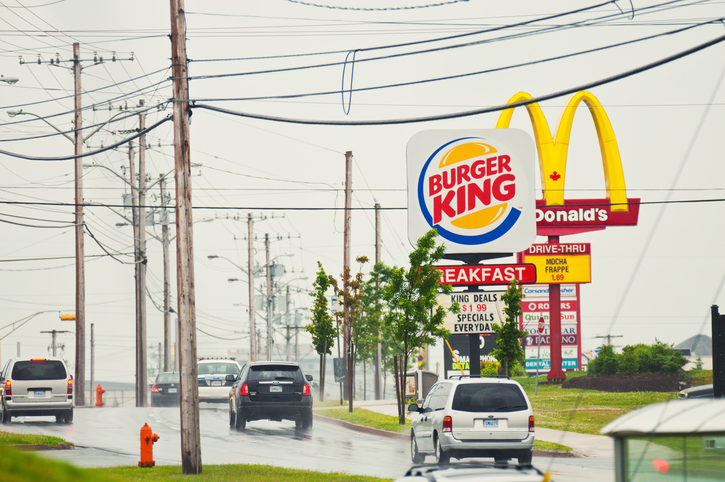Sustainability-focused investor network FAIRR and nonprofit Ceres have announced the results of their two-year joint effort to motivate six of the world’s biggest fast food chains to adopt more environmentally friendly practices.
FAIRR represents the sustainability interests more than 200 institutional investors managing over $38 trillion in combined assets, while Ceres’s Investor Network on Climate Risk & Sustainability comprises 163 institutional investors, collectively managing more than $25 trillion in assets.
In January 2019, the pair formed a coalition of investors with combined assets of $6.5 trillion with the aim of pushing the fast food brands to “de-risk” their meat and dairy supply chains, calling on them to set “ambitious” GHGe reduction targets, undertake climate risk scenario analysis, and reduce their water-related impact.
According to the partners, the coalition has since grown to include over 90 investors with combined assets of $11.4 trillion.
The duo said in a joint statement that they had used “investor engagement” to get the six global fast food brands to “[ramp] up their climate commitments in the face of growing investor pressure to decarbonize their supply chains.”
In what they described as a “breakthrough” year, the two organizations claim they managed to get five of the chains — McDonald’s, Chipotle, Domino’s, Wendy’s, and Yum! Brands, which operates KFC, Pizza Hut, and Taco Bell outlets — to either set “science-based targets” to reduce their greenhouse gas emissions (GHGe), or formally state that they will adopt such targets to reduce their carbon footprints.
To be considered as ‘science-based,’ the targets must meet standards defined by the UN-backed Science Based Targets Initiative (SBTi).
The sixth company — Burger King, Popeyes, and Tim Hortons owner Restaurant Brands International — said it will set a GHGe reduction target “that includes its Scope 3 emissions,” but it is unclear at this stage whether it will be approved by the SBTi.
This represents significant progress on last year, according to FAIRR and Ceres, when McDonald’s was the only one out of the six to have set a science-based target, while Yum! Brands had announced its intention to adopt a science-based target.
Meat & dairy industries holding back global progress on climate change, FAIRR report says – read more here
The jump in momentum appears to be in response to consumer and investor pressure on fast food brands to change their practices. Demand for plant-based foods is also driving sustainability commitments, according to FAIRR and Ceres.
Nevertheless, the pair claim that fast food brands still have work to do when it comes to addressing water scarcity and pollution risks in their meat supply chains.
In their report, FAIRR and Ceres said the six companies fall short in terms of meeting the climate-related corporate financial disclosure recommendations developed by the Task Force on Climate-Related Financial Disclosures (TCFD).
The report said there had been “limited progress” on TCFD-aligned climate risk analysis by all six brands, describing the situation as “concerning” for investors “given that UK companies will be legally required to report against TCFD by 2025 and the US Securities & Exchange Commission has also begun to explore potential [similar] regulations.”
Likewise, while all six brands “now acknowledge the materiality of water risks to their supply chains,” half of them haven’t disclosed any assessment of such risks, the report said. Efforts to reduce supply chain water use and water pollution have been “limited in scale and scope,” it added.
FAIRR has been making a diligent attempt to encourage major food brands to increase their commitments around sustainability and the effort appears to be paying off. Even during the Covid-19 pandemic, consumers still showed serious concern about sustainability and how food production impacts the environment. Products with a sustainability halo even saw a boost in sales during Covid-19 as consumers dealt with financial hardships, product shortages and quarantine fatigue.
With a number of pledges in place, some stakeholders may be watching to see whether the five major fast food companies who have set or who plan to set pledges will follow through and hit their targets.
FAIRR and Ceres said they are opening a “third phase” of engagement with the six fast food giants to additional investor participation in order top push for further change.





